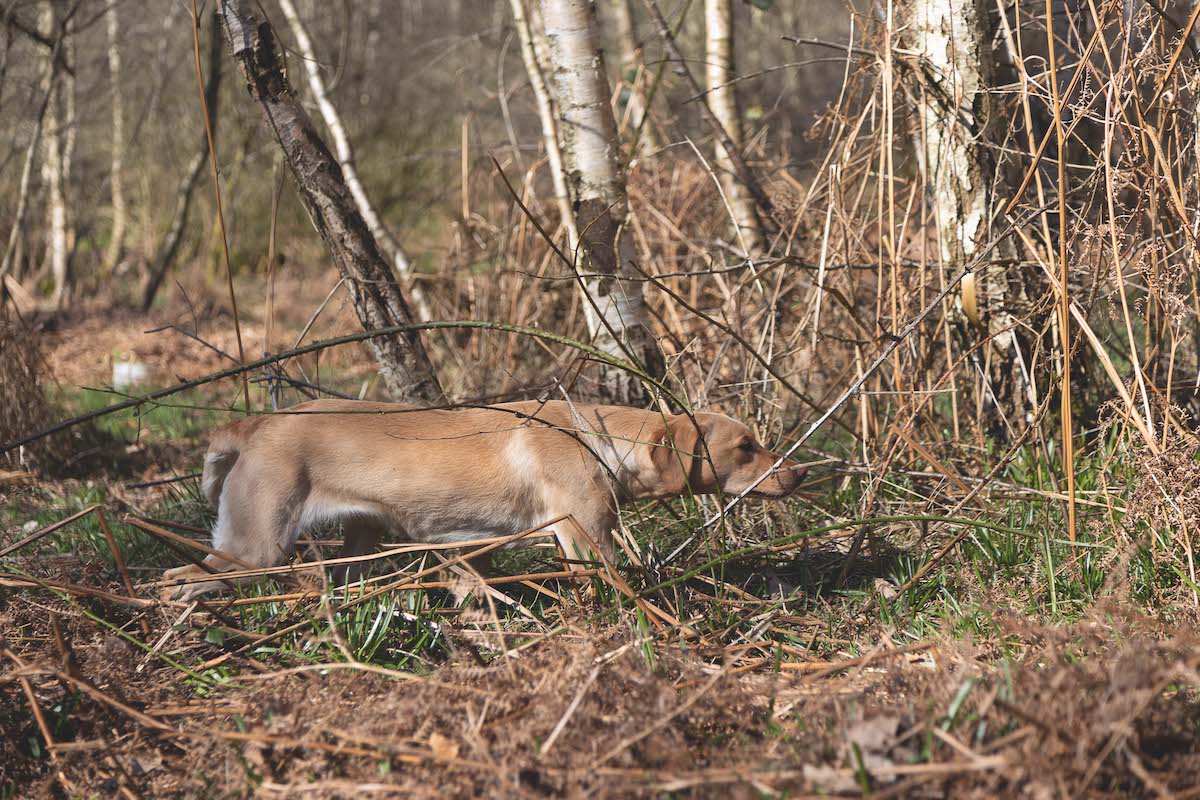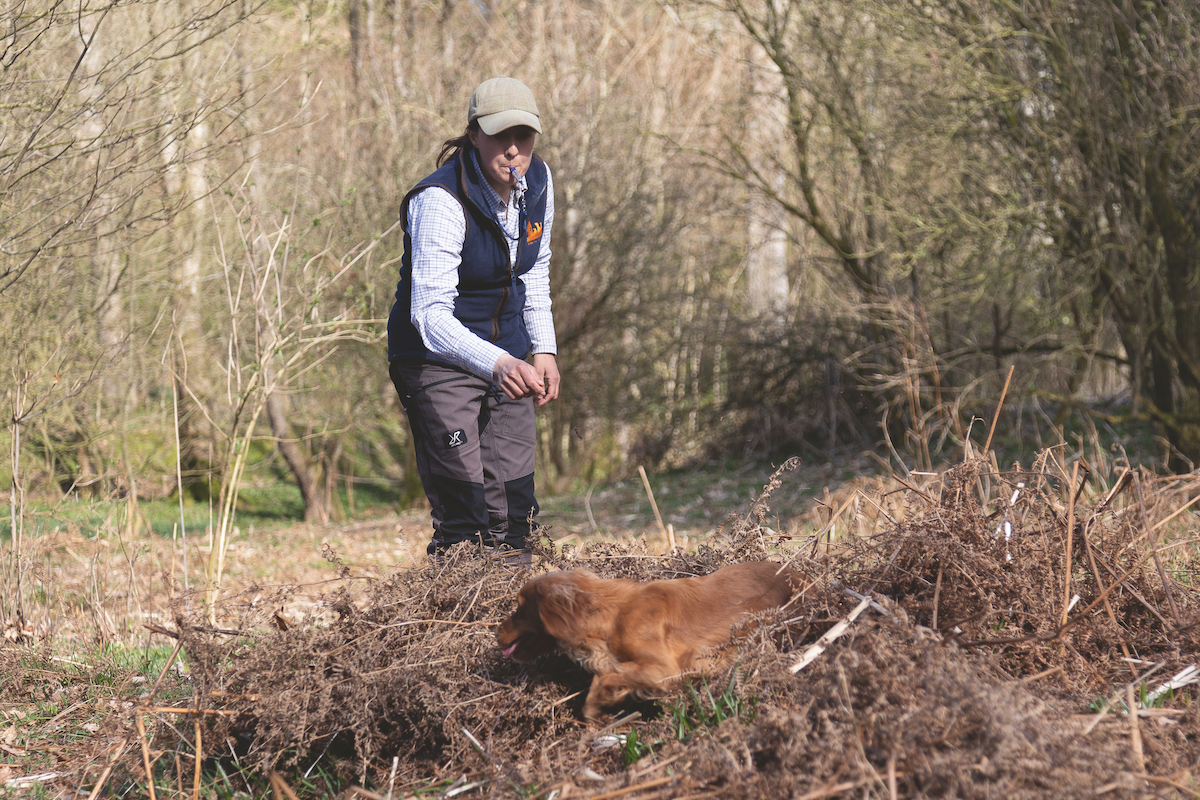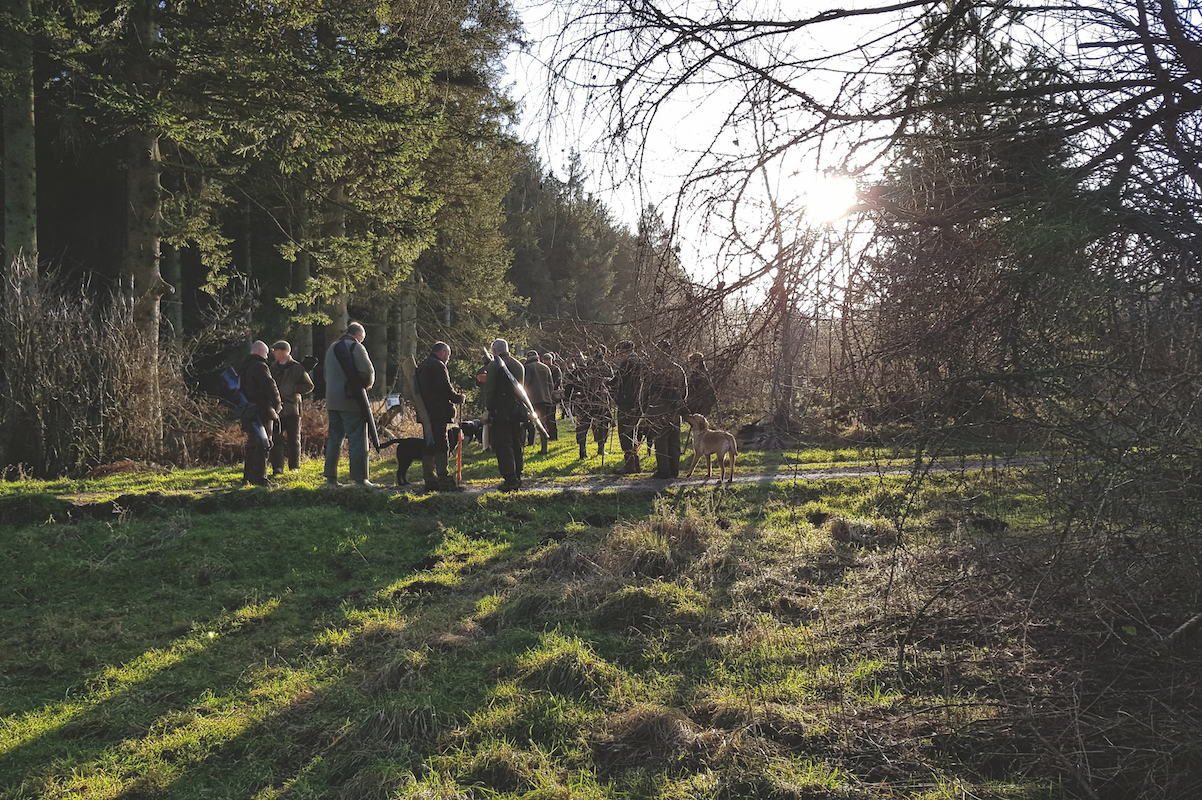Teaching your dog about negotiating obstacles: why it’s an important part of working dog training
Fran Ardley looks at coaching your dog to negotiate the obstacles it will encounter when retrieving

Fran encourages her dog to go beyond the obstacle to pick the dummy
I see a lot of novice trainers setting up their retrieving exercises out in the open with very few distractions or obstacles in the way, and although we should be doing this, we also need to test and develop our dogs’ skills and give them experience with obstacles. (Read more on training your gundog for water work.)

Fran has set herself up in an environment with many obstacles
What is an obstacle?
Obstacles don’t necessarily have to be something solid or substantial, such as a wall or a wide stream. Many dogs will find it challenging to cross over a grass ridge in a wood or a ditch in a field, and their natural instinct will be to hit the obstacle and begin to hunt up and down it. I have seen it happen time and again. At our eye-level, a group of trees or hedgeline could appear open, but a dog’s perspective will likely be very different, especially if the background is uniform.

Fran’s dog has hit the trees, which act as a natural barrier
Plough through
It isn’t uncommon for an inexperienced dog to take the line when sent out for a retrieve, and when it reaches the barrier it hunts along it. Spaniels find it testing to not investigate an area that may hold something of interest. You can try to handle the dog back and through the cover, but it is more efficient for the dog to go through to pick its retrieve. You can train your dog to do this.

Slowly build the distance of the retrieve to help your dog gain confidence
Distance learning
As with all training exercises, it is good practice to build up the difficulty. I start off by standing immediately in front of obstacles and throw a dummy to the other side. I then send the dog out quickly for the retrieve. Initially, I stand my ground and throw the dummy further away, but once the dog has got the idea and has gained confidence I will retreat and repeat the exercise, until I am sending the dog from a reasonable distance from the obstacle.

Start working on blind retrieves as the next step of the process
Going in blind
The next stage is to repeat the process, but now setting out blind retrieves for the dog. Walk the dog at heel through the barrier and drop a dummy behind you, making sure the dog doesn’t see you do it, then set up the dog and send it out for the dummy. Because of the repetition of the previous exercise, the dog should have the confidence to go straight out and through the barrier to make the retrieve. Again, gradually build up the distances from where you leave the dummy to where you send the dog. Remember to vary your training area and to practise with different barriers; that way, your dog gains as much experience as possible in different scenarios. (Read training your young gundog – from dummies to game.)








